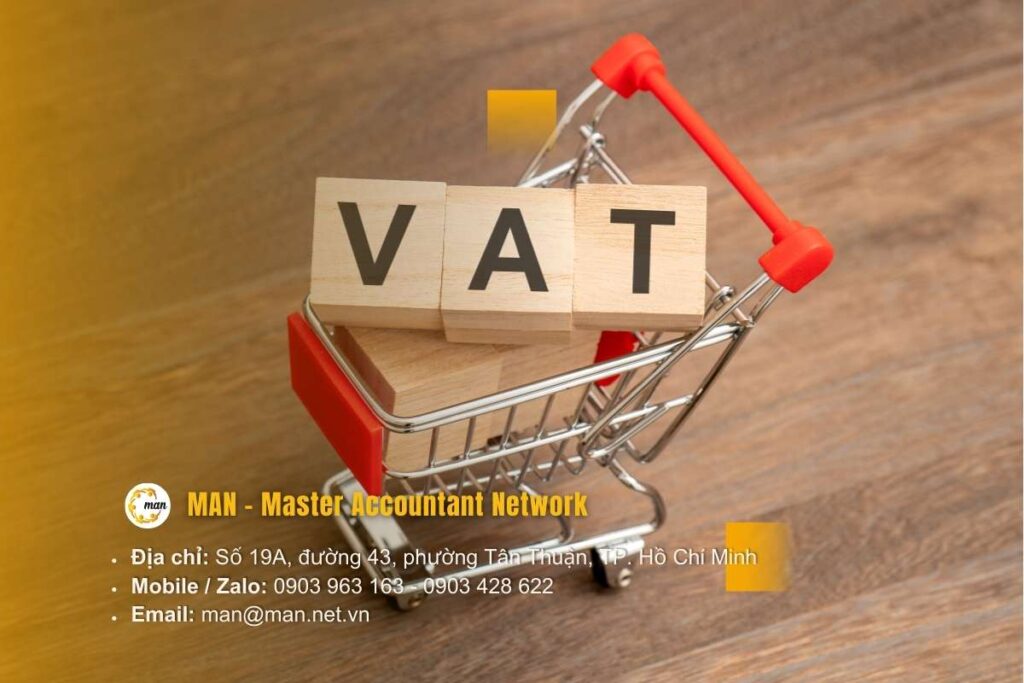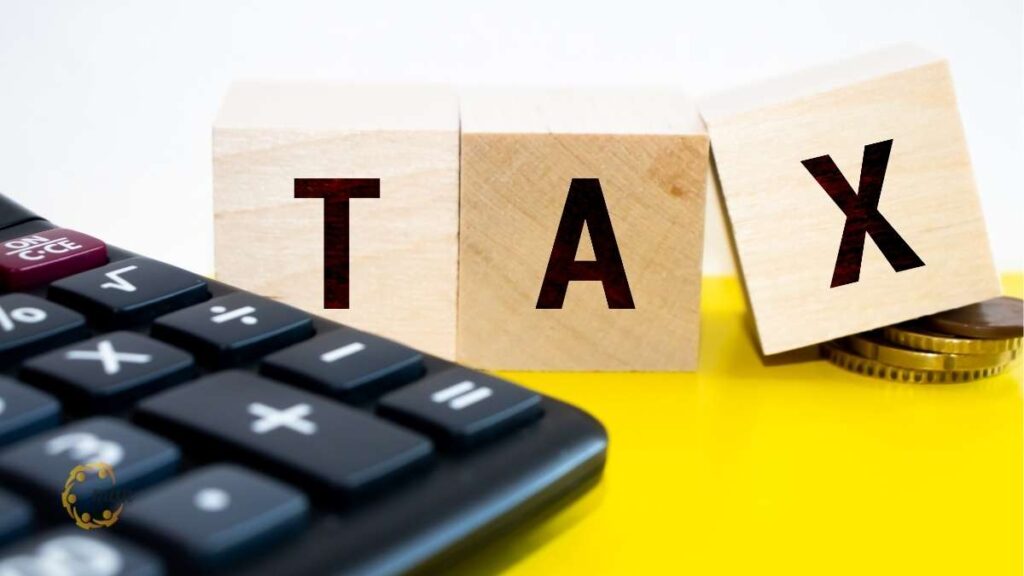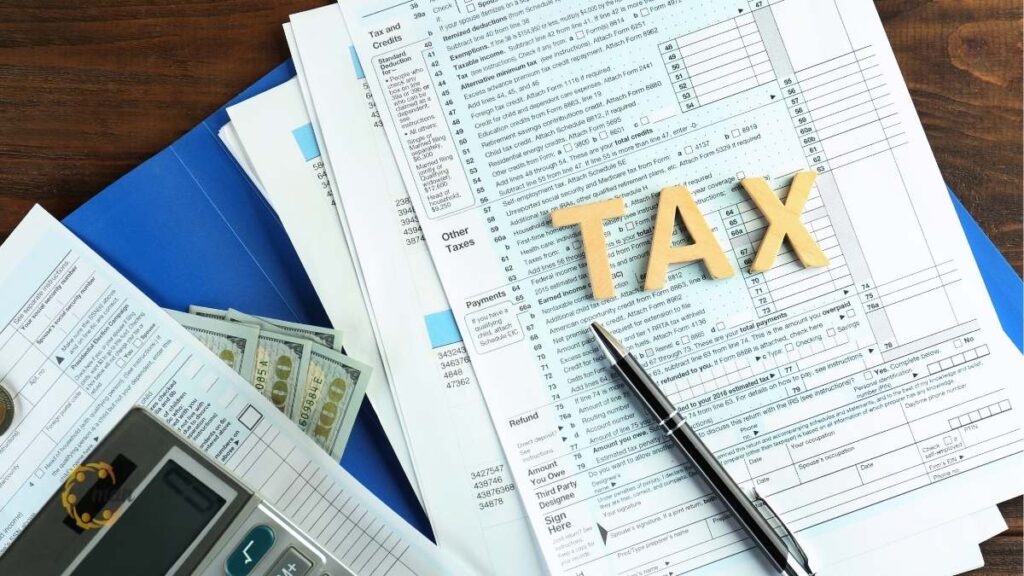What is VAT? This is one of the most common taxes today, applied to the added value of goods and services in the process from production, circulation to consumption. This is an important source of revenue for the State budget and has a direct impact on both businesses and consumers. The article will clarify the concept, characteristics, role, applicable subjects, as well as tax rates and how to calculate VAT according to the latest regulations.
What is VAT?
To explain the question What is VAT?, below are the latest definitions and regulations on VAT in Vietnam:
According to WikipediaValue Added Tax (VAT) is an indirect tax in the group of commercial taxes, levied on the added value of goods and services. Although the enterprise is the unit that declares and pays the tax to the State, the actual cost bearer is the final consumer. Because this is a tax levied on domestic consumption, exported goods are usually not subject to VAT and exporting enterprises can get a tax refund.
In Vietnam, value added tax (abbreviated as VAT) is referred to in Article 2 of Law No. 48/2024/QH15 with the following definition:
“Value added tax is a tax calculated on the added value of goods and services arising in the process from production, circulation to consumption.”
In short, VAT is an indirect tax levied on the added value of goods and services through each stage of production, circulation and consumption, paid by the final consumer.
See more articles: VAT Overview – MAN
Characteristics and role of VAT
Based on the definition of "What is VAT?", the characteristics and roles of VAT are given as follows:
Characteristics of VAT
VAT has some outstanding features that help distinguish it from other taxes, and at the same time explain why it has become one of the important sources of revenue for the State budget. Here are some features of VAT:
VAT is an indirect tax.
VAT is classified as an indirect tax, meaning that the nominal taxpayer (enterprise, organization, business household) is not the one who bears the final tax burden. Instead, this tax is added directly to the selling price of goods and services and the final consumer is the one who actually pays. Enterprises only play the role of "collecting on behalf of" the State through declaring and paying VAT collected from customers.
VAT is based on the value added at each stage.
Unlike sales tax or business tax, VAT is only calculated on the value added at each stage of the production and circulation process. For example, if a product has been subject to VAT at the raw material stage, then at the processing stage, tax is only calculated on the value added compared to the original materials. The input tax deduction mechanism helps eliminate double taxation, ensuring fairness between stages.
VAT is applied according to the destination principle.
VAT is collected at the place where goods and services are consumed (destination principle). This means that exported goods – which are consumed abroad – are usually not subject to VAT. Exporting enterprises even have the right to request a refund of taxes paid at previous stages, in order to encourage export activities and increase competitiveness in international markets.
VAT has a wide scope of application.
Most consumer goods and services in Vietnam, including imported goods, are subject to VAT, except for some special cases clearly specified in the law. Therefore, VAT has become a tax covering almost all consumer activities in the economy.
The role of VAT
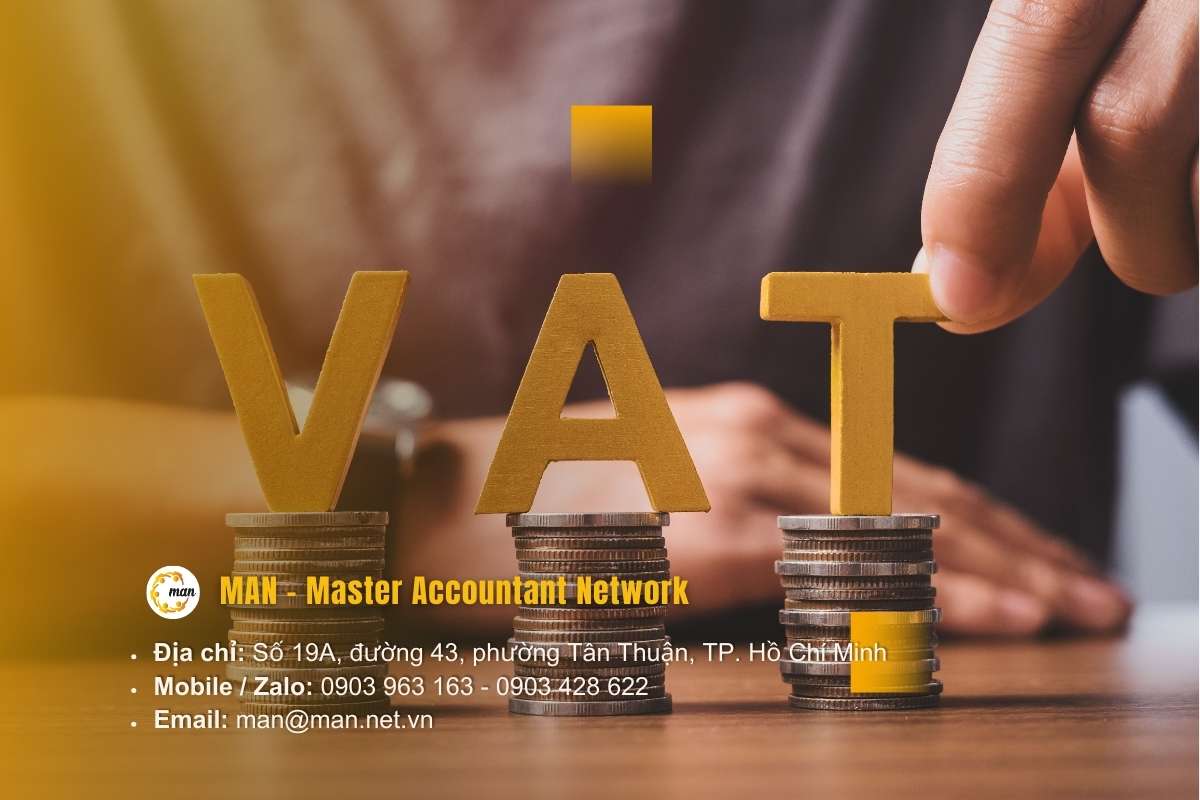
VAT is the “lever” that helps the State regulate the economy, guide consumption and ensure fairness in tax obligations. This tax demonstrates its role in three main aspects: for the State budget, for business activities and for the whole society. These roles are always closely linked to socio-economic development as follows:
VAT contributes greatly to the state budget.
VAT is one of the main sources of revenue, accounting for a high proportion of the total annual budget revenue. With a wide scope of application and convenient collection mechanism, this tax helps the State maintain a stable revenue stream to serve public spending activities such as infrastructure construction, healthcare, education and social security programs.
VAT promotes transparency and control of business activities
The mechanism of declaring, deducting and issuing VAT invoices requires businesses to fully record purchase and sale transactions. This not only helps tax authorities to better monitor and limit revenue loss, but also contributes to reducing the situation of business without invoices, thereby improving market transparency.
VAT is a tool to regulate consumption.
The State can adjust VAT rates for each group of goods and services to guide consumption and economic development. For example, apply low tax rates for essential goods and services to support people, or increase tax rates for some items that do not encourage consumption to limit negative impacts on health and the environment.
VAT contributes to harmonizing interests between the State, businesses and consumers.
This tax is designed to both ensure revenue for the budget and not create too much of a burden for businesses thanks to the input tax deduction mechanism. Consumers, although bearing the final cost, also indirectly benefit from budget spending on infrastructure, welfare and public services.
New Tax Law 2025
As of July 1, 2025, VAT Law 2024 will be applied instead of the Law on Value Added Tax 2008. Therefore, regulations related to taxable and non-taxable subjects, tax rates, tax calculation methods and tax refund procedures will be adjusted to suit the current socio-economic situation. Enterprises, business households and individuals need to promptly update new points of the law to ensure proper implementation of tax obligations, avoid violations and take advantage of preferential policies if applicable.
Here is the reason for the birth of this law:
| REASON | DETAIL | QUOTE |
| Perfecting tax policies to suit digital economic trends | Supplementing regulations on tax declaration and payment for foreign suppliers without a permanent establishment in Vietnam but conducting e-commerce business or via digital platforms with domestic organizations and individuals. | Clause 2, Article 4 of the 2024 VAT Law |
| Expanding tax base and increasing revenue for the State budget | Remove fertilizers, machinery, specialized equipment for agriculture and some other goods from the list of goods not subject to VAT. These goods will be subject to the tax rate of 5%. | Clause 13, Article 5 of the 2024 VAT Law |
| Support businesses and individuals | Regulations on VAT exemption for goods and services of households and individuals with annual revenue of VND 200 million or less (previously VND 100 million). | Clause 25, Article 5 of the 2024 VAT Law |
| Ensuring transparency, consistency and synchronization | Adjust and unify regulations on taxable objects, taxable prices, deductions and refunds; especially unify requirements for non-cash payment documents when deducting input tax. | Principles throughout the entire process of building and perfecting the Law |
Subjects subject to and not subject to VAT
Subjects subject to VAT
According to Article 3 of the Law on VAT 2024, VAT subjects include all goods and services used for production, business and consumption in Vietnam, regardless of domestic or imported origin. Only those listed in the non-taxable category are excluded. In addition, cross-border services provided via e-commerce and digital platforms from foreign suppliers without a permanent establishment in Vietnam are also subject to tax, contributing to expanding the tax base and ensuring fairness among business entities.

In short, except for cases stipulated by law not subject to VAT, all domestic consumer goods and services, whether domestic or foreign in origin, will be subject to VAT at the corresponding tax rate.
Subjects not subject to VAT
According to Article 5 of the Law on VAT 2024 (Law No. 48/2024/QH15), there are a number of groups of goods and services that are determined not to be subject to VAT. Specifically including:
Unprocessed agricultural, forestry and fishery products
These products are not subject to VAT if they are only processed normally (dried, dried, peeled, cleaned, salted, frozen, etc.) and are directly produced or imported by organizations or individuals. This group includes crops, planted forests, farmed and caught aquatic products, as well as animal feed and aquatic feed.
Plant and animal breeding materials
Livestock breeding products (according to regulations on animal husbandry) and plant breeding materials (according to regulations on cultivation) are exempt from VAT. This tax exemption is intended to encourage the production, breeding and development of high-quality breeds.
Pure salt and iodized salt
Salt produced from seawater or natural salt mines, whose main ingredient is NaCl, is not subject to VAT. This policy supports the traditional salt production industry and ensures security of supply.
State-owned housing for sale to tenants
In case of public housing or state-owned housing being resold to the tenant, VAT will not be charged. This regulation is to create conditions for people to settle down and stabilize their lives.
Agricultural services for production
Services such as irrigation, plowing, dredging canals, harvesting agricultural products, etc. are exempt from VAT. The purpose is to reduce production costs and support farmers and businesses in the agricultural sector.
Transfer of land use rights
Land use rights transfer activities are not subject to VAT, contributing to promoting a transparent real estate market and reducing transaction costs.
Note: From July 1, 2025, some goods previously not subject to tax (such as fertilizers, agricultural machinery, offshore fishing vessels, etc.) will be subject to VAT 5% or 10%, according to the new provisions of the VAT Law 2024. This expands the tax base and increases revenue for the state budget.
See more articles at: VAT Subjects – MAN
VAT rate for each subject
In Article 9 of the 2024 VAT Law clearly stipulates three tax rates applicable to each group of goods and services, in order to create transparency, ease of application and ensure fairness among business sectors. Correct application of tax rates not only helps businesses comply with the law but also optimizes financial efficiency.
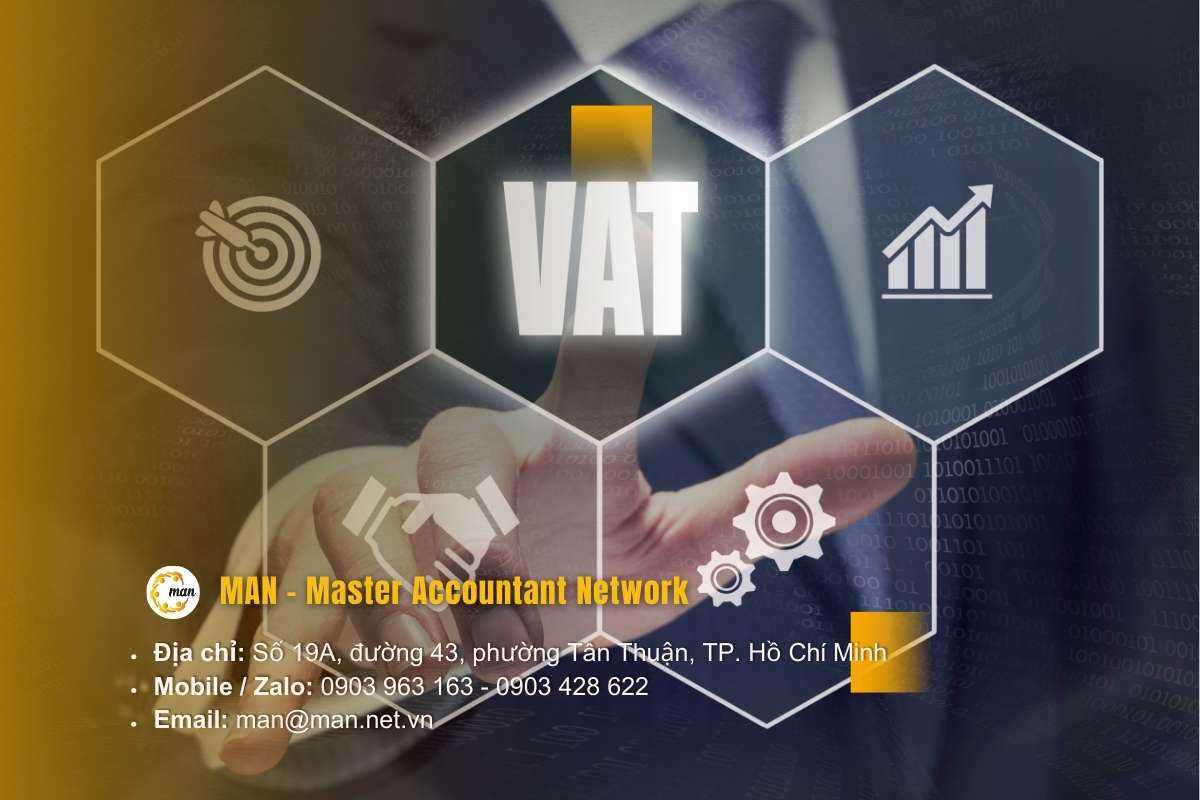
- Tax rate 0%: Applies to goods and services exported or consumed outside Vietnam, such as international transportation, international aviation/maritime services, construction works abroad, goods sold at duty-free shops.
- Tax rate 5%: For some groups of essential goods and services such as clean water, medical equipment, textbooks, etc.
- Tax rate 10%: The general tax rate applies to most domestic consumer goods and services if they are not subject to 0% or 5%, and are not on the list of non-taxable goods.
- Tax rate 8%: Applicable to a number of groups of goods and services as prescribed in Decree 174/2025/ND-CP, effective from July 1, 2025 to December 31, 2026. This tax rate is applied to groups of goods and services currently subject to tax rate 10%, except for groups of goods and services specified in Appendix I issued with this Decree.
See more articles at: VAT Rate – MAN
VAT declaration process
As prescribed in Article 11 Law on Value Added Tax 2024The tax deduction method is applied to business establishments that fully implement the accounting, invoice and voucher regimes according to the provisions of law on accounting, invoices and vouchers, including:
- Business establishments with annual revenue from selling goods and providing services of 1 billion VND or more, except for households and individuals engaged in production and business;
- Business establishments voluntarily apply the tax deduction method, except for households and individuals engaged in production and business;
- Foreign organizations and individuals providing goods and services to conduct oil and gas exploration, development and exploitation activities shall pay tax according to the tax deduction method declared, deducted and paid by the Vietnamese party on their behalf.
To declare value-added tax using the deduction method, businesses need to prepare and submit value-added tax declaration form No. 01/GTGT according to the provisions of Circular 80/2021/TT-BTC. This declaration must be submitted on time according to the law to avoid administrative penalties.
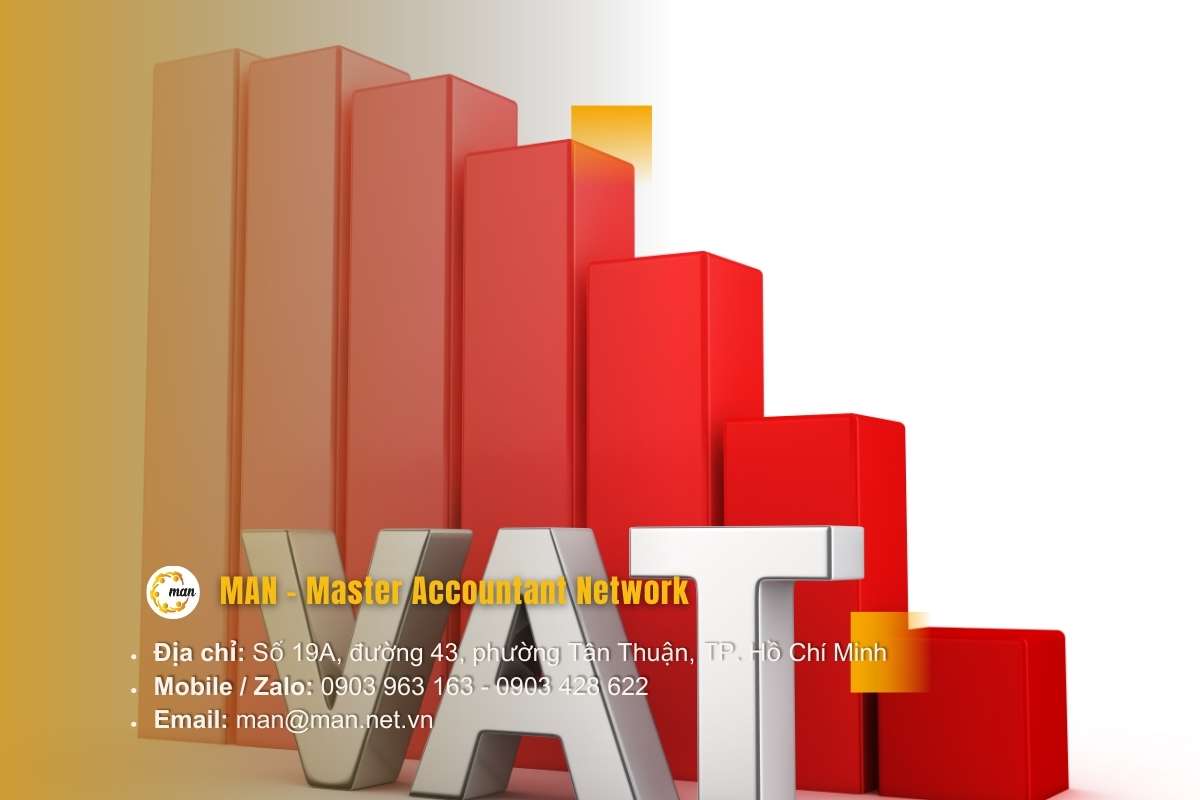
Businesses also need to keep complete invoices and documents related to the purchase of goods and services to serve the inspection and audit work of tax authorities. Correct implementation of the value-added tax declaration process according to the deduction method not only helps businesses comply with the law but also contributes to building a transparent and sustainable business environment.
See more articles at: VAT declaration and payment – MAN
Conclude
VAT plays a key role in the Vietnamese tax system, ensuring revenue for the State budget, contributing to consumer orientation and promoting transparency in business activities. With changes from the 2024 VAT Law (effective from July 1, 2025), businesses, business households and individuals need to quickly update information to fulfill tax obligations in accordance with regulations, while taking advantage of legal preferential policies.
If you want to master new regulations, apply correct tax rates and optimize financial efficiency, our team of experts MAN – Master Accountant Network ready to accompany, provide professional tax consulting and declaration support solutions, helping you focus on your core business activities. Contact MAN today for detailed advice and answers to all questions about VAT.
Contact information for corporate income tax services at MAN – Master Accountant Network
- Address: No. 19A, Street 43, Tan Thuan Ward, Ho Chi Minh City
- Mobile/Zalo: 0903 963 163 – 0903 428 622
- Email: man@man.net.vn

